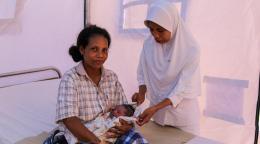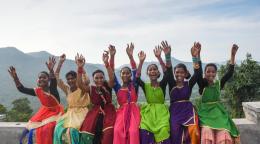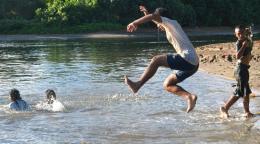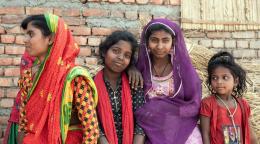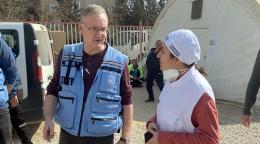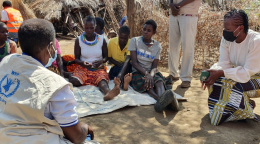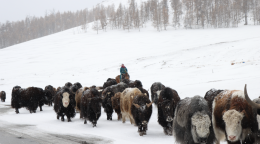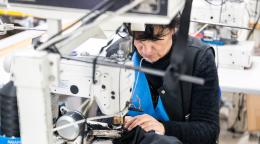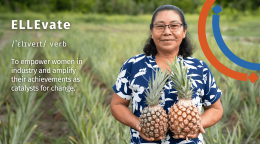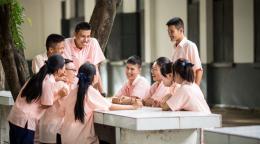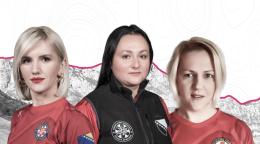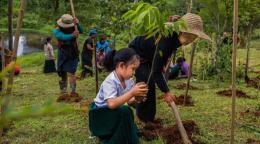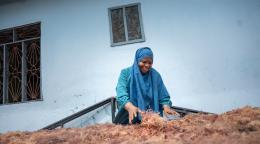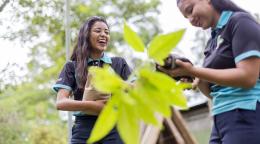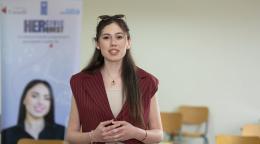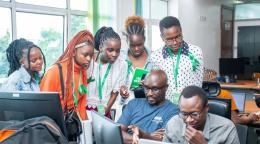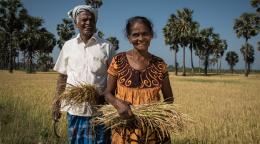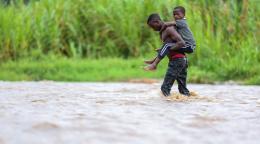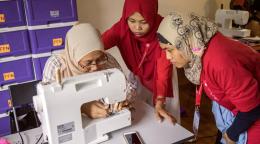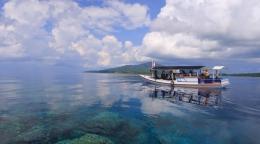Indigenous Wayuu women of Venezuela weave dreams for a sustainable future
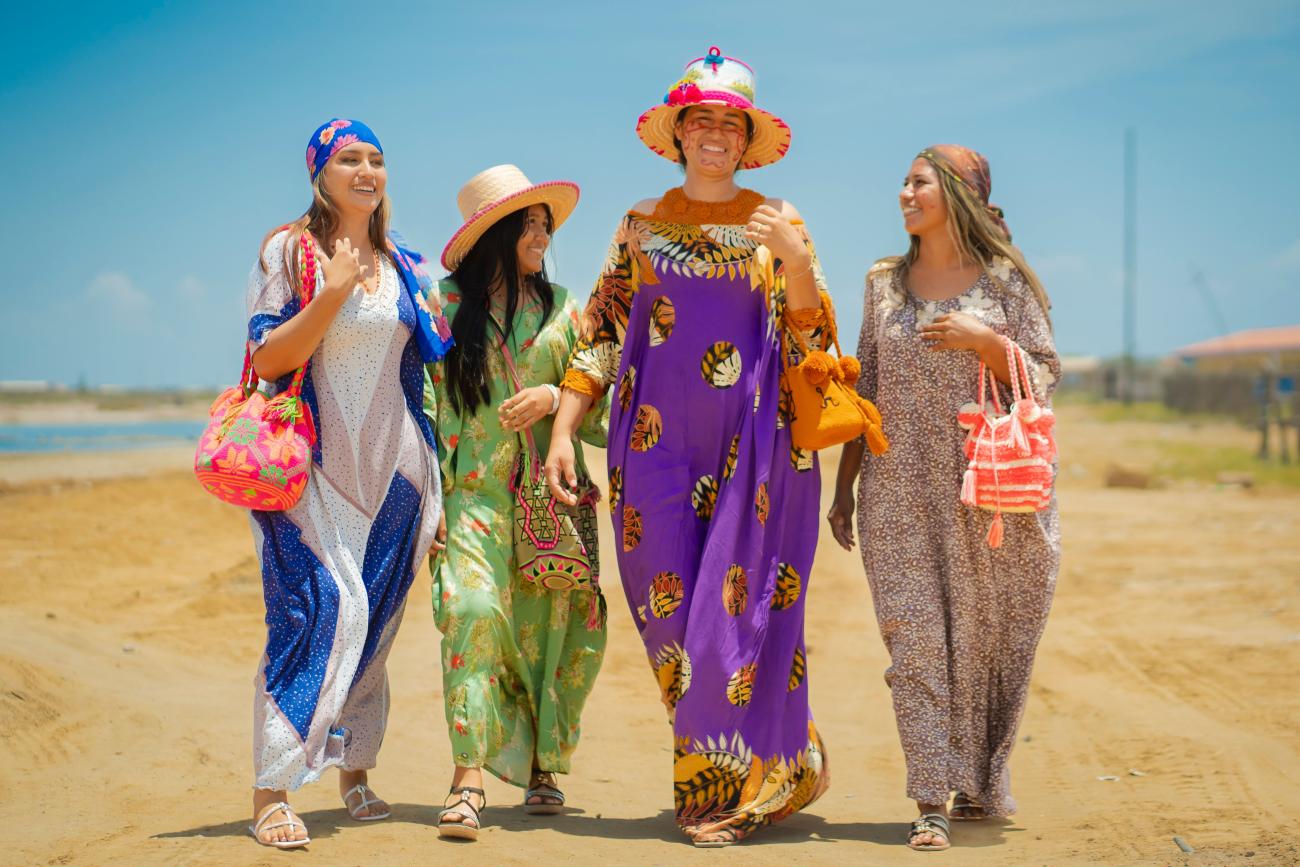
In the arid vastness of the Guajira peninsula in northwestern Venezuela lies Paraguaipoa. This is the land of the Wayúu people, one of the country’s 44 indigenous groups that enrich the cultural diversity and heritage of Venezuela. The Wayúu are the largest indigenous group in the nation, known for producing colorful, high-quality textiles that are part of an ancestral women-led practice that connects them with their roots and builds strong community bonds.
In the Venezuelan Guajira, socio-economic factors make livelihood opportunities scarce, leaving the Wayúu with limited options for income generation. The difficult economic context in the country, particularly in this remote area, puts the continuity of Wayúu weaving at risk as many weavers move to neighboring Colombia to seek work. The limited market to sell these textiles at a competitive price has put greater pressure on this dying art.
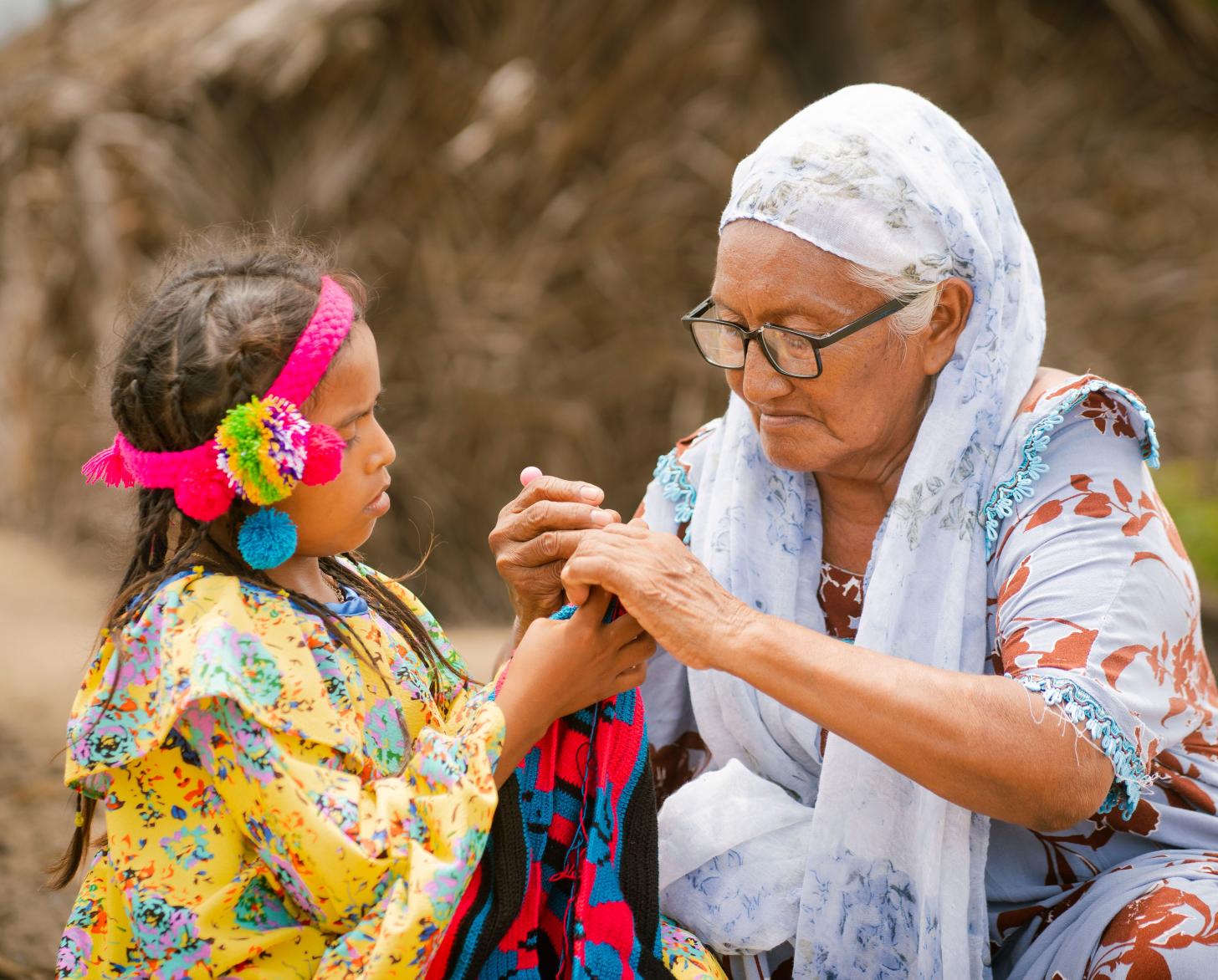
Preserving tradition for a better life
For the Wayúu people, preserving their culture through weaving is essential to their identity and way of life, as well as to the cultural heritage they have cultivated and passed down through generations. Women, in particular, have engaged in weaving for over two centuries. Paraguaipoa is located 2-3 hours away from the nearest city, Maracaibo, and transportation is limited and due to the presence of armed groups on many roads, oftentimes dangerous. With few local alternatives, Wayúu women are forced to seek work in Maracaibo or Colombia.
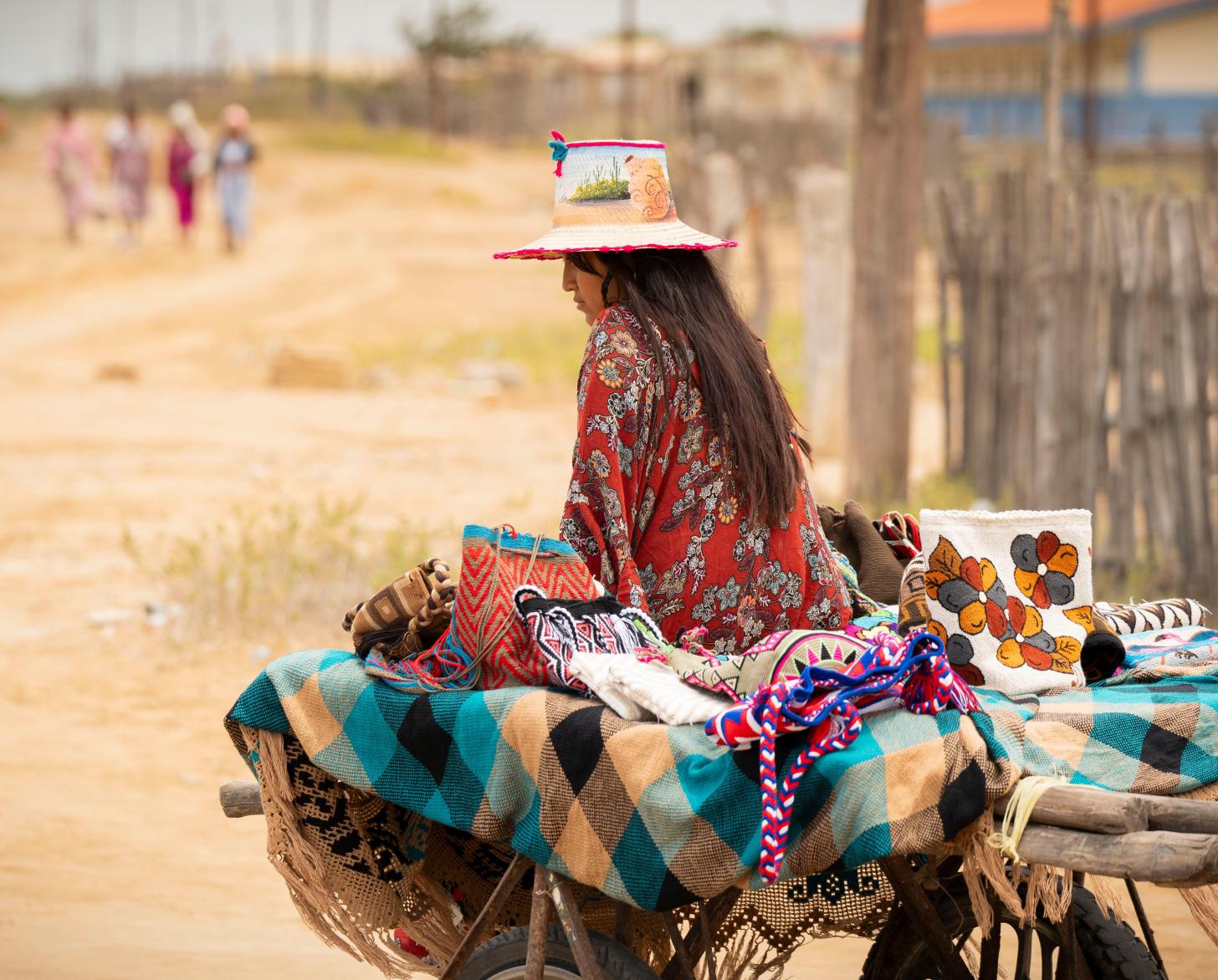
In addition to cultural preservation, weaving has a significant practical advantage for Wayúu women, especially for mothers, because it allows them to generate income while working from home, where they play the role of caregivers and manage household tasks.
To promote the learning and practice of this pre-Hispanic art as a sustainable livelihood in Paraguaipoa, the UN Refugee Agency (UNHCR) has provided supplies to 50 indigenous Wayúu women—many of them heads of household—and created, alongside the UN Population Fund (UNFPA), local NGOs, and community leaders, the first “Yarn Cone Bank” of the Guajira Peninsula.
This project initiated by UNHCR and developed in partnership with UNFPA would serve the Wayuu women in three ways.
First, as a collection centre for yarn donations to the senior weavers, for use in their capacity building training programs on weaving. Second, as an initiative where UNHCR in partnership with UNFPA would hold workshops around the prevention of gender based violence (GBV) in the community, business management and women empowerment. Third, as a platform to help the Wayuu women to effectively manage the profits from the retail of their textiles, by facilitating access to the opening of checking accounts through UNHCR’s partnership with Banco Plaza.
One of the leaders of this project is Freyla González, a 72-year-old expert weaver known for her weaving skills in the community as “the spider,” who learned this traditional craft from her mother and passed it on to her children, her grandchildren, and other women in her community.
“We didn’t have weaving machines; all the clothes we produced were handmade. I have a lot of patience, that’s what makes me a good teacher,” recalls González.
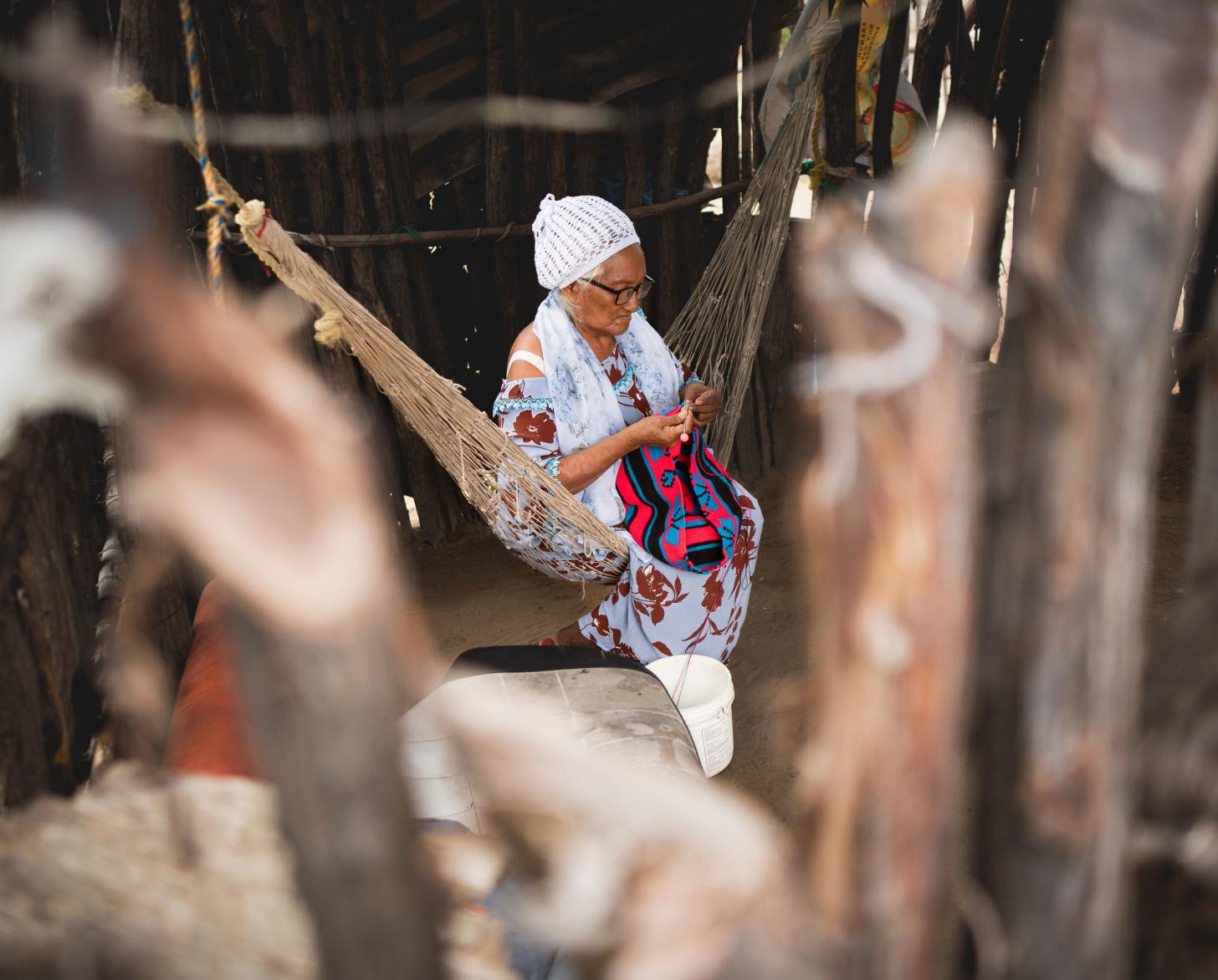
This patience and enthusiasm served as an inspiration for a group of 50 women in her community, who were impressed by her talent and decided to take weaving lessons with her. They mastered the technique and began to produce textile products like hammocks, bags, purses, and hats to start their businesses.
“For some of them, it was a bit hard to start. But later, as they could see their progress and the results of their work, they became very disciplined and, in an average time of 15 days, they were able to learn,” she recounted.
Empowering the Wayuu women
Building on this support, Wayúu women in Paraguaipoa are earning their own money and gaining financial independence. This empowers them in family decision-making and reduces the risks of gender-based violence motivated by financial stress.
The Yarn Cone Bank in Paraguaipoa also serves as a safe space for women in the community, a place where UNFPA and UNHCR deliver training and capacity-building programs on gender-based violence prevention and response, financial practices, business management, social media, and community leadership.
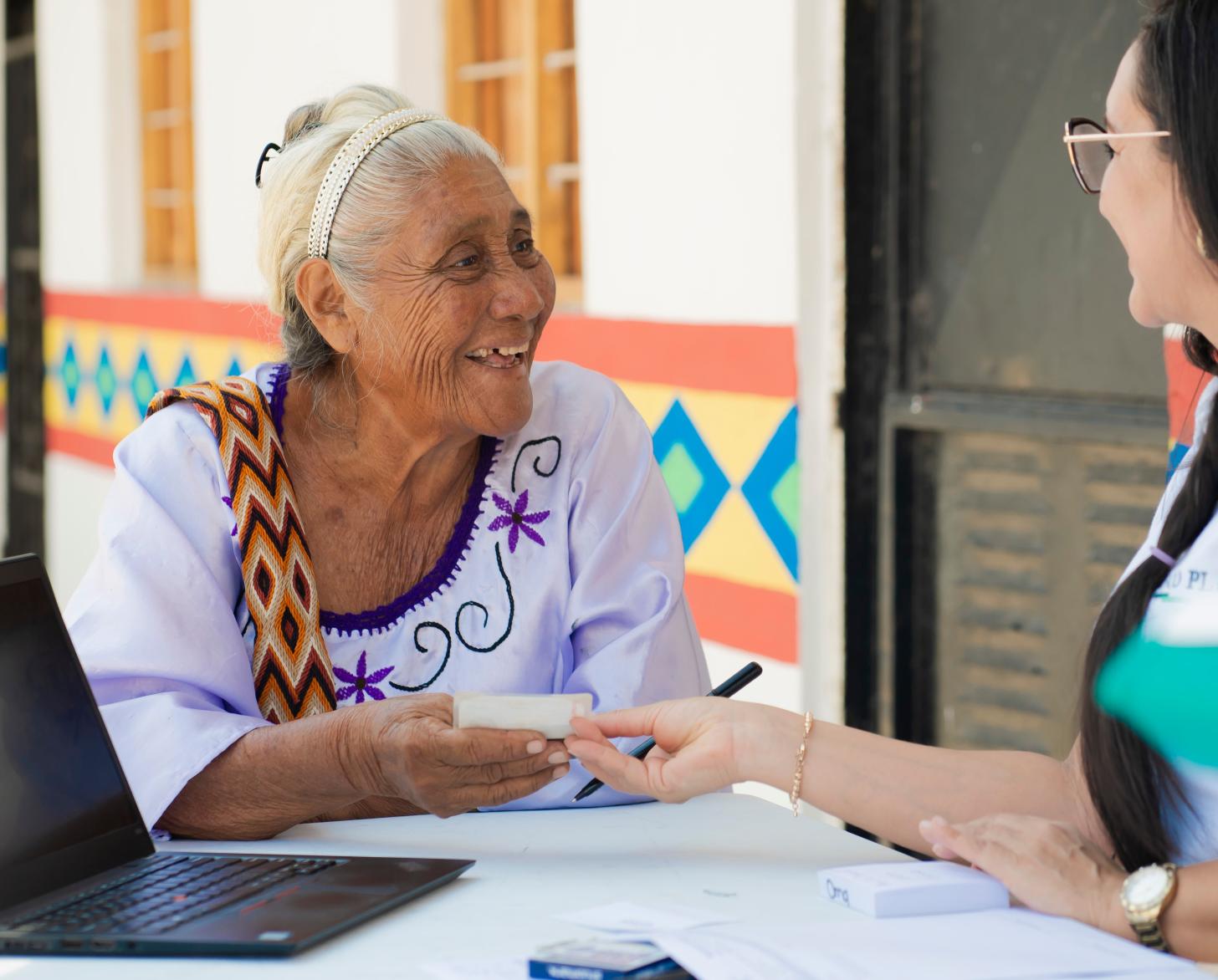
For Yuskairy Hernández, a 25-year-old local leader and the head manager at the Yarn Cone Bank, these talks and workshops have been crucial. “We have learned new skills and how to effectively manage our business initiatives,” she explains. “Thanks to UNFPA, we learned to determine the value of our products. We understood that the quality and efforts we invested in the production of our textiles should be reflected in their final price.”
Yuskairy’s home has served as the premises for the Yarn Cone Bank ever since the project started in 2022. There, women gather to exchange weaving techniques and put into practice all they have learned during the workshops conducted by UN agencies, addressing situations of gender-based violence and advising survivors on referral pathways and available services.
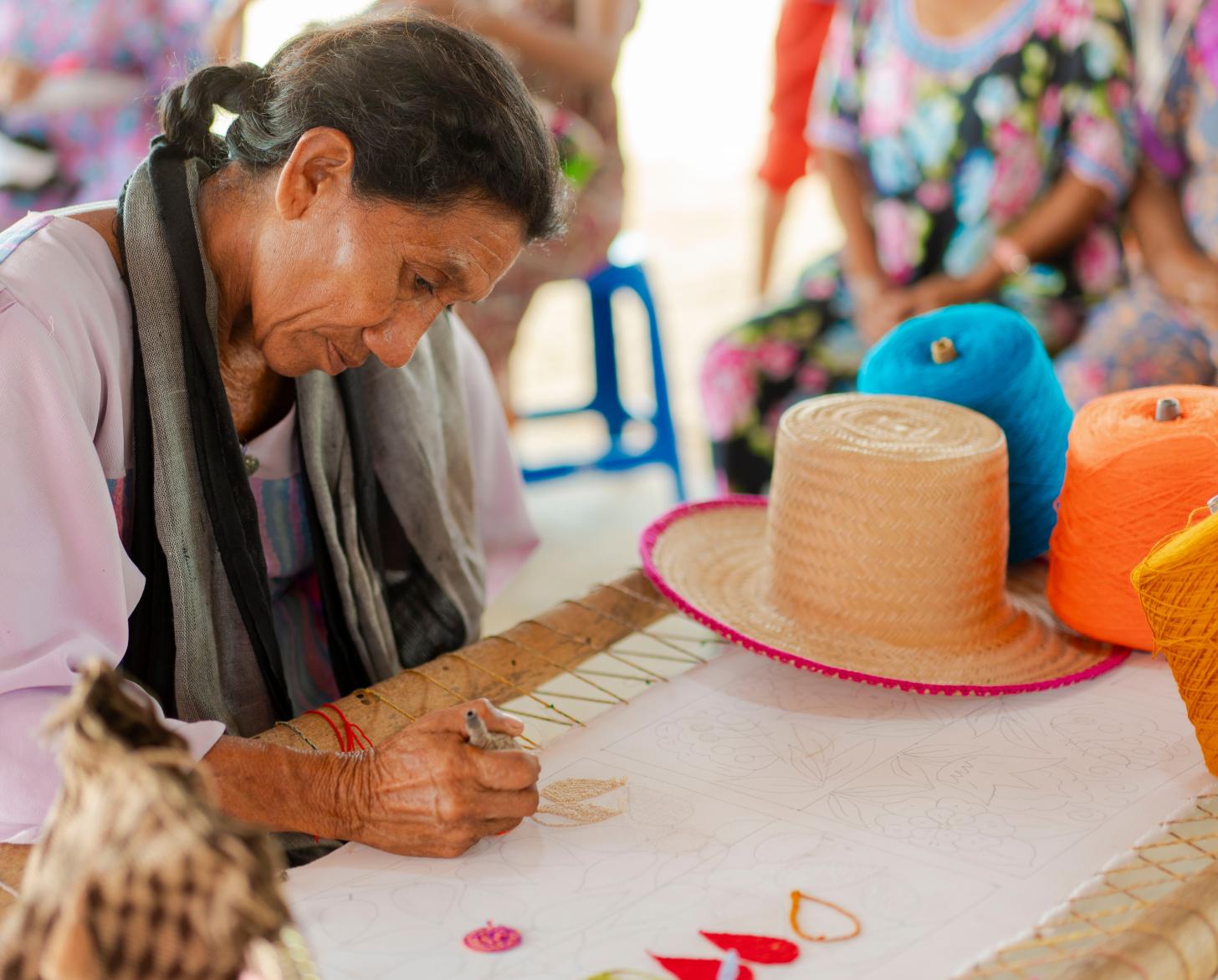
Strengthening partnerships for a sustainable future
Wayúu weavers often take part in local fairs and bazaars to sell their textiles, but before the launch of this project it was difficult for them to perform business transactions. To address this issue, UNHCR partnered with a local bank to facilitate access to checking accounts and other financial services for these women.
This newly acquired financial capacity is an incentive for the weavers to expand the sale of Wayúu products in Venezuela, reducing the need for recurring visits to Colombia to retail their handicrafts and cutting down the security risks of crossing the border.
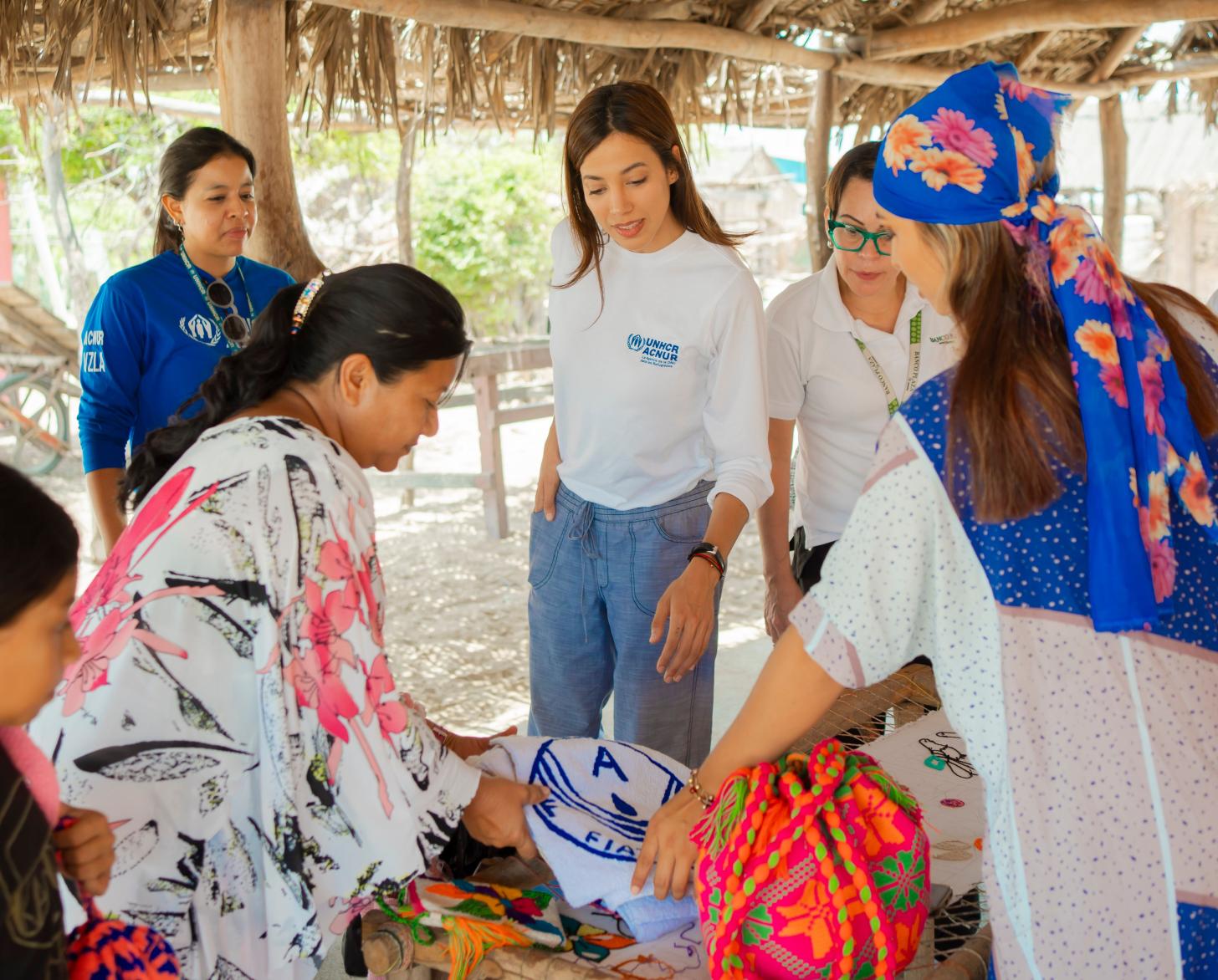
The Yarn Cone Bank in Paraguaipoa remains a model example of how an inter-agency initiative can promote women’s rights and empowerment, protect indigenous peoples’ ancestral traditions, create safe spaces for women and children, and bring the private sector closer to the reality and needs of people living in remote communities.
Watch the story of the Wayúu women and the Yarn Cone Bank
For more information about the UN's work in Venezuela, visit venezuela.un.org
